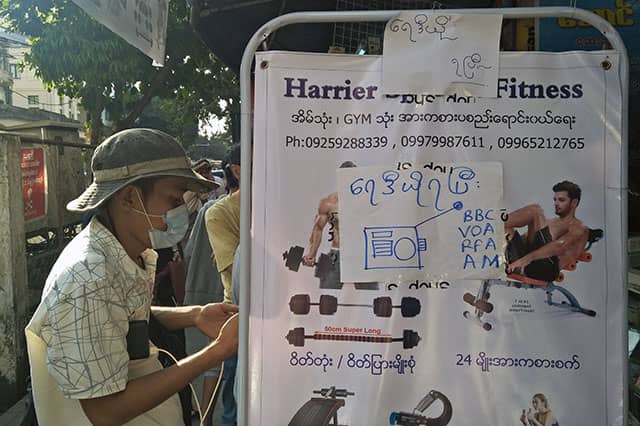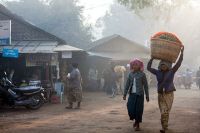Joint Statement on Mobile Internet Shutdown in Myanmar

The Global Network Initiative and the Myanmar Centre for Responsible Business have issued a Joint Statement to mark nearly two months of mobile internet disruptions and internet restrictions in Myanmar.
International or Myanmar companies are welcome to align to the statement. Please contact if you want to sign up.
MYANMAR NEEDS TO RETURN TO FULL MOBILE INTERNET
On 1 February 2021, the military declared a State of Emergency. It is two months today since the mobile internet was shut down across the country. Other internet services have also been increasingly restricted. The effect of this is felt most acutely on mobile internet subscribers, who account for over 99% of Myanmar’s internet subscribers. Many people, particularly those in rural areas where no alternative internet services exist, rely on their mobile phones to access information about health, education, information, and for their livelihoods and remittances.
Nationwide restrictions to mobile internet and wireless broadband have made the Myanmar people more economically and physically vulnerable in the face of the COVID-19 pandemic and prevented them from exercising their right to freedom of expression and association. Moreover, such restrictions may undermine the right to privacy and security of communications guaranteed by the Myanmar Constitution.
The current restrictions have also significantly impacted local and international businesses, and the wider economy. A recent survey of businesses in Myanmar identified internet disruptions as the second-greatest challenge they were facing (after banking disruption), impacting 70% of those surveyed. In particular, the e-commerce sector, and local SMEs and entrepreneurs have been faced with significant challenges such as delivering their services, transferring funds and conducting everyday business further contributing to the fragility of the banking sector.
The current approach to permit ‘whitelisting’ of certain internet services, including select financial services, is not a long-term solution. While this approach acknowledges the negative impacts of broader restrictions, it is technically difficult and practically ineffective to implement. It can also be discriminatory as it primarily seeks to retain the functioning of only certain services while denying access to the many other services and sources of information which people in Myanmar need. Instead, the default approach should be to allow access to all websites and services.
We, therefore, reiterate our previous calls for equal and unrestricted access to information across all telecommunications networks in Myanmar.
Signatories
| Asia Internet Coalition | Bolo Bhi | Domini Impact Investments |
| ERA Public Relations | Ericsson | |
| Free Expression Myanmar | Frontier Myanmar | Frontiir |
| Global Media Development Forum | Internet Sans Frontieres | Kinetic Myanmar Technology Co., Ltd |
| NetBlocks | Ooredoo Group | Open Net |
| PEN America |
Ranking Digital Rights | RICE |
| Telenor Group |
TOTAL |
Unocal Myanmar (Chevron) |
| Wave Money | Wikimedia Foundation |
Women of Uganda Network (WOUGNET) |
Share:


 English
English မြန်မာ
မြန်မာ မြန်မာ (unicode)
မြန်မာ (unicode)






